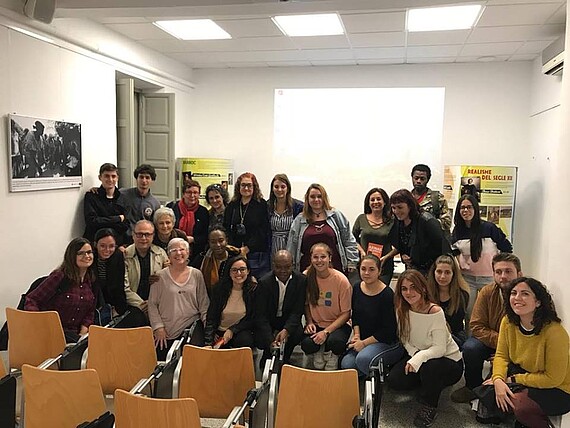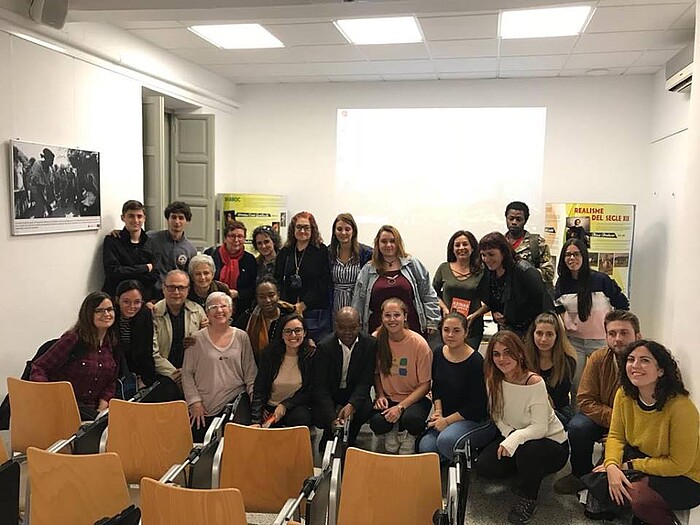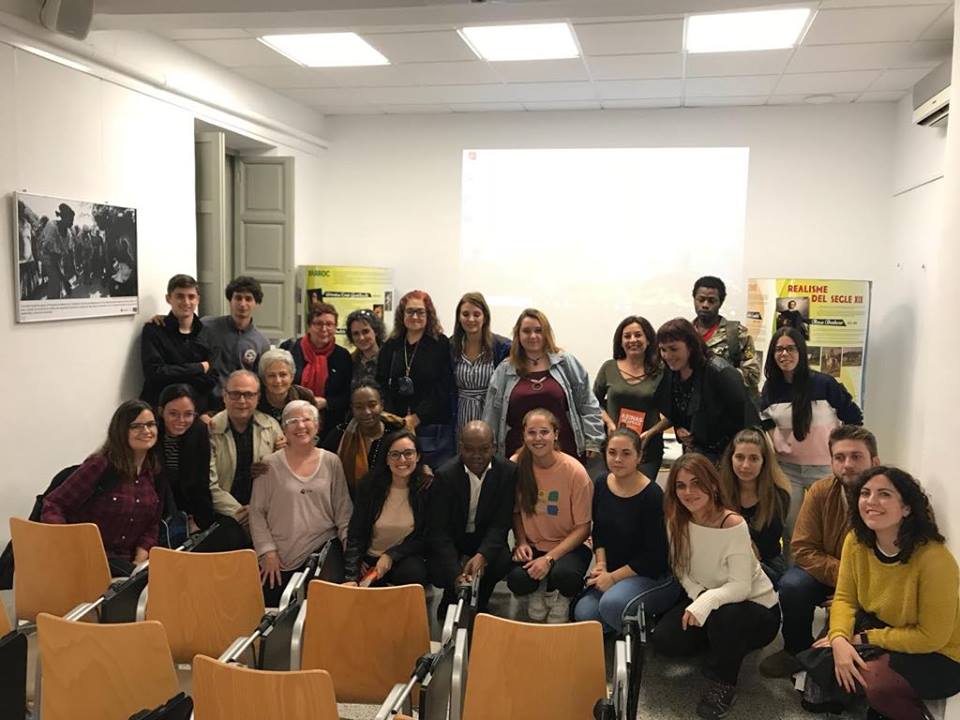


Leigh-Ann and I are both doing our internship abroad at the Centre Euro Africa in Barcelona. It is an association that was founded a few years ago by African emigrants. It is active in two areas in particular. First, it sees itself as a networking platform for its members. In recent years, the Centre Euro Africa has developed very good contacts to various political and social institutions and makes these available to its members. The second central task is the representation of the African diaspora in Spain, which is very strongly represented in Spain but hardly noticed by the public and the media. The association therefore regularly organises events with different African and European personalities and organisations. At the moment, for example, we are organising an event with the Women's March Barcelona. In addition, several events with the South African Embassy in Madrid are being planned for 2019.
Our tasks as interns mainly include public relations, organising events and general administrative tasks. We also regularly accompany our boss to meetings and sometimes act as interpreters.
Leigh-Ann and I got our internships at the organisation rather by chance. An acquaintance who lives in Barcelona asked around for internship opportunities for us in her environment and was able to establish contact between us and the chairman of the organisation. After the first contact, we had a telephone interview relatively quickly and shortly afterwards we already had an acceptance. However, it soon became clear that the internship would not be paid, so we had to organise a scholarship before the final acceptance. Leigh-Ann and I first both applied for the Erasmus+ scholarship, as this is very well funded at 360 euros per month for Spain and can be applied for with relatively little organisational effort. Leigh-Ann was accepted without any further problems. However, it was explained to me that I could not be supported by Erasmus+ because I had already lived in Spain as a child. I then applied for the Promos scholarship, which pays 300 euros a month and requires a lot more organisational effort.
Life in Barcelona offers a lot of variety, but is very expensive. The rents in particular are astronomically high. We were "lucky" at first, because our ad on the Barcelona for Germans page was answered by a Swiss woman who wanted to go on a world trip and was therefore looking for an interim tenant for her room. As the contact was very nice and the rent was only 600 euros, we did not get overly suspicious about not getting a tenancy agreement (it is rather unusual to get a tenancy agreement anyway when moving into a shared flat in Barcelona). However, after our arrival we were surprised to find that the Swiss woman was still living in the flat and sleeping with a friend in the other room. Everything went well until we were told after two weeks that we would have to move out at the end of the month because she didn't want to go on a world tour after all. After the initial shock, we quickly found a new and better room through sites like Badi and Idealista and received a reasonable refund from our landlady. Nevertheless, we would advise everyone to first rent a room in a hostel or on AirBnB and then search locally. Also, always insist on a contract.
Joshua Calderón, Leigh Ann Mc Sweeney
